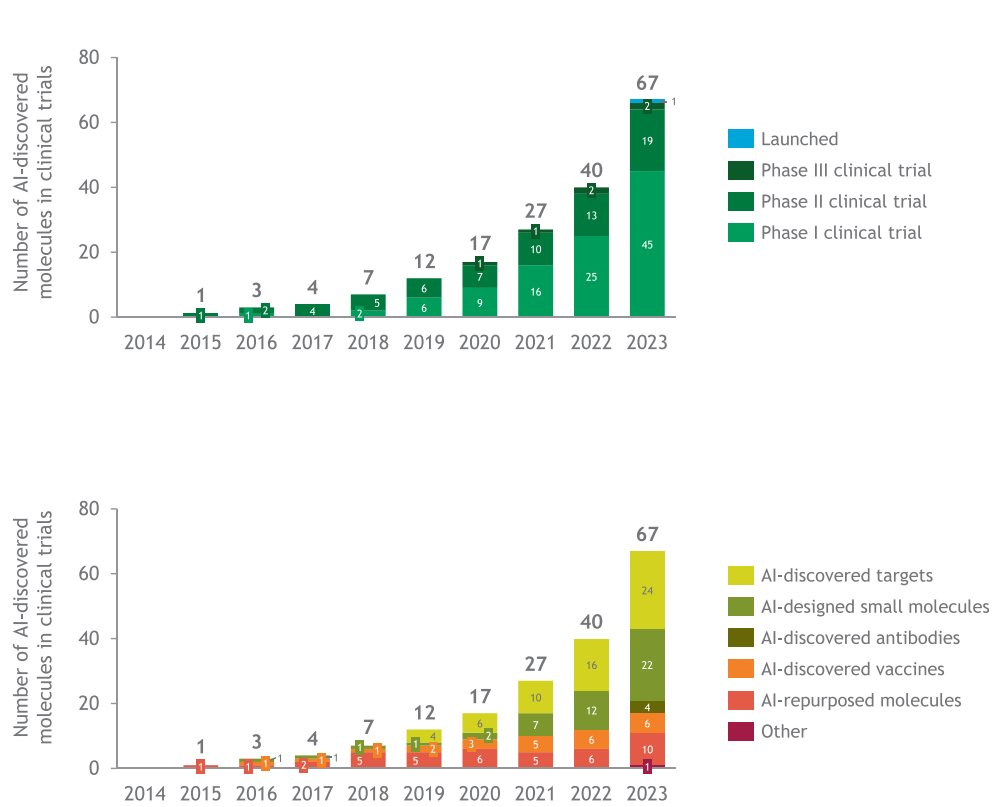
Introduction
The process of bringing a new drug to market is notoriously complex and faced with many challenges. It requires a significant investment of time and resources, often spanning several years and encountering numerous hurdles. In the pursuit of innovative treatments, the pharmaceutical industry has turned to artificial intelligence (AI) to streamline the drug discovery process. Here, we examine the transformative impact AI is having on the development of new therapeutics.
The Role of AI in Accelerating Drug Discovery
AI has emerged as a critical tool in expediting the drug discovery pipeline. By automating laborious tasks and enhancing the breadth of exploration, AI technologies are reshaping the landscape of pharmaceutical research and development (R&D). By the beginning of 2024, each of the top 20 pharmaceutical companies had announced activities in AI. Knowledge graphs, generative AI, and AI-powered structure prediction are just a few examples of the techniques employed to identify targets, design molecules, and repurpose existing drugs.

Collaborations Fuel AI-Driven Innovations
Strategic partnerships between pharmaceutical giants and AI-native biotech firms have become the norm of modern drug discovery. These alliances have led to a surge in the number of AI-discovered drug candidates entering clinical trials, highlighting the industry’s commitment to integrating AI into their R&D processes.
Clinical Success Rates of AI-Discovered Molecules
Preliminary findings indicate that AI-discovered molecules have impressive success rates in early-stage clinical trials. In Phase I trials they have an 80–90% success rate. This is substantially higher than historic industry averages. The implication is that AI is highly capable of designing or identifying molecules with drug-like properties. In Phase II studies the success rate was 40%. This was on a limited sample size, but also comparable to historic industry averages. With success rates surpassing historical averages, these results hint at the potential for AI to significantly improve the efficiency and output of pharmaceutical R&D.
The Future Outlook for AI in Drug Discovery
As we forecast the path of AI in the context of drug research, the potential outcomes appear optimistic. With continuous advancements in AI methodologies and a growing body of evidence demonstrating clinical success, the integration of AI technologies is poised to deliver more effective medicines to patients with greater speed and reduced costs.
